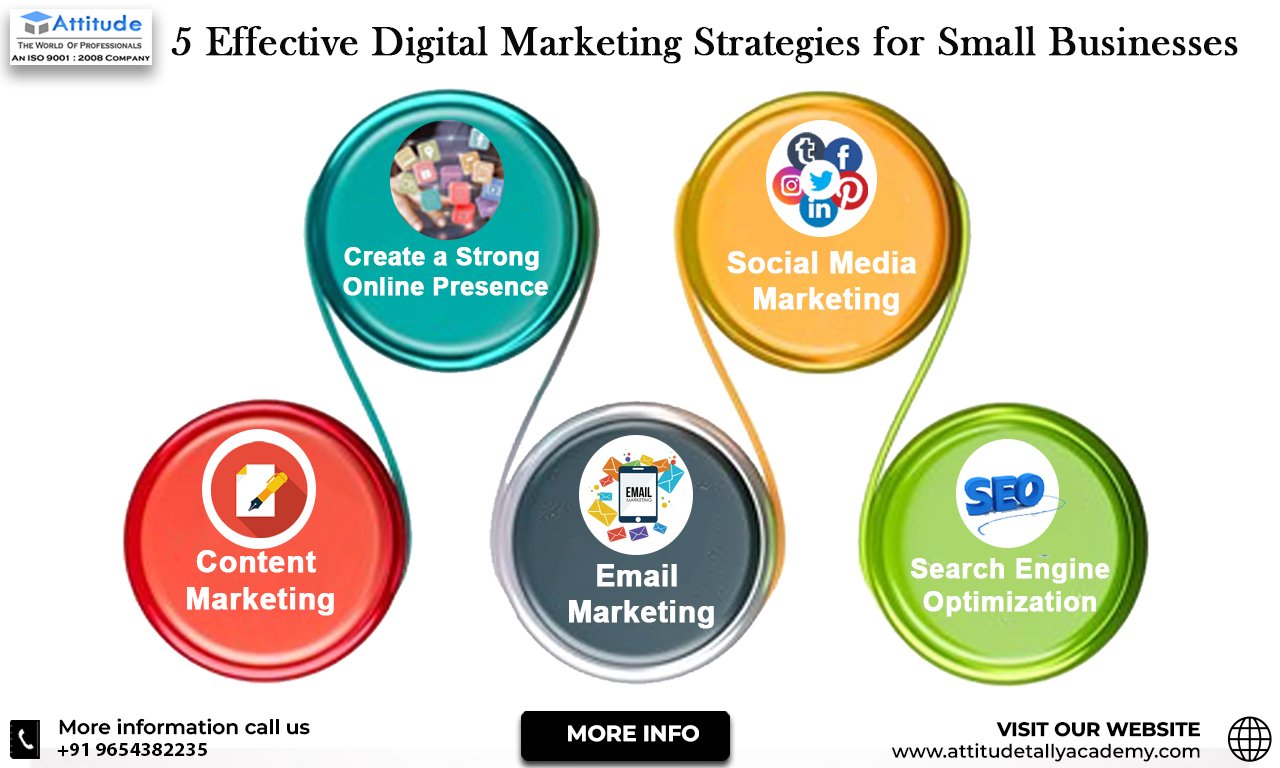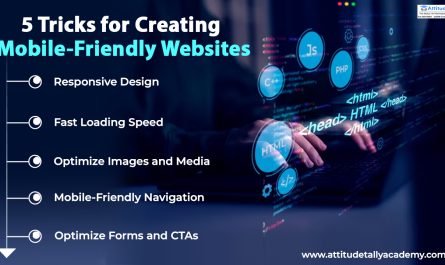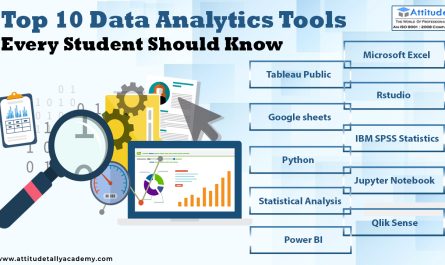Introduction
In today’s digital age, small businesses have access to a plethora of tools and techniques that can help them reach a wider audience and compete with larger competitors. Digital marketing is the key to unlocking this potential. In this blog, we will explore five effective digital marketing strategies that can empower small businesses to grow their online presence, connect with their target audience, and ultimately boost their bottom line.
Create a Strong Online Presence
The first step in any successful online marketing strategy is to establish a strong online presence. This involves setting up a professional website that is not only visually appealing but also user-friendly and optimized for search engines (SEO). Your website is often the first point of contact for potential customers, so it should effectively convey your brand’s message, products, and services.
Additionally, claim your business on Google My Business to ensure your company appears in local search results. An active presence on social media platforms like Facebook, Instagram, and Twitter is also crucial. Regularly updating your profiles with engaging content can help you connect with your audience and build a loyal following.
Content Marketing
Content marketing is a powerful tool for small businesses to establish authority in their industry and attract organic traffic. Start a blog on your website and regularly publish high-quality, informative, and relevant content that addresses the needs and interests of your target audience. This can include how-to guides, industry insights, and customer success stories.
By consistently providing valuable content, you can position your business as a trusted source of information and build a community of engaged readers. Additionally, search engines reward fresh, valuable content with higher search rankings, making it easier for potential customers to find your website.
Email Marketing
Email marketing remains one of the most effective and cost-efficient ways to engage with your audience and drive sales. Build and maintain an email list of your customers and website visitors. You can then use email campaigns to share product updates, promotions, educational content, and more.
Personalize your emails to make your subscribers feel valued, and segment your list based on customer preferences and behaviors to send targeted messages. Don’t forget to optimize your emails for mobile devices, as many people check their emails on smartphones and tablets.
Social Media Marketing
Social media platforms are invaluable tools for small businesses to connect with their target audience and promote their products or services. Create a content calendar and post regularly to keep your audience engaged. Visual content, such as images and videos, tends to perform well on platforms like Instagram and Pinterest, while Facebook and LinkedIn are ideal for sharing articles and updates.
Paid advertising on social media can also be a cost-effective way to reach a larger audience. Platforms like Facebook Ads and Instagram Ads allow you to target specific demographics, interests, and behaviors, ensuring your ads are seen by the most relevant potential customers.
Search Engine Optimization (SEO)
Optimizing your website for search engines is essential for driving organic traffic. Conduct keyword research to identify the terms and phrases your target audience is searching for, and incorporate them strategically into your website’s content. This includes optimizing meta titles and descriptions, headers, and image alt tags.
High-quality backlinks from reputable websites can also boost your SEO ranking. Consider outreach and content partnerships to secure these valuable backlinks. Regularly monitor your website’s performance with tools like Google Analytics to track your progress and make necessary adjustments to your SEO strategy.
Conclusion
In the digital age, small businesses have numerous opportunities to thrive and compete with larger competitors. By implementing these five effective digital marketing strategies – establishing a strong online presence, content marketing, email marketing, social media marketing, and SEO – small businesses can connect with their target audience, increase brand visibility, and drive growth. Remember that digital marketing strategies is an ongoing process that requires dedication and adaptation to stay competitive in today’s dynamic online landscape.
Website Designing Training Adobe InDesign
vfx &3D Animation Video Editing Expert Expert in Digital Marketing




